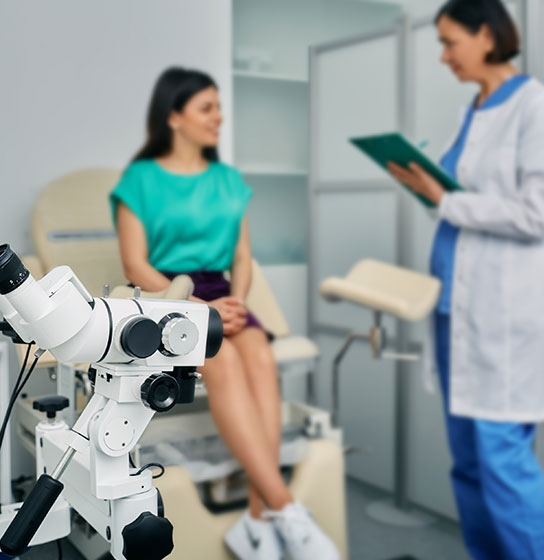How HPV At-Home Self-Collection Can Help End Cervical Cancer in the United States
May 17, 2024

Key Takeaways:
- Primary HPV tests are preferred as a highly sensitive cervical cancer screening with low false positive rates
- Teal Health is conducting clinical studies to evaluate HPV at-home self-collect cervical cancer screening using the Teal WandTM and in April 2024, Teal Health was granted FDA Breakthrough Designation
- In May 2024, the first two in-clinic self-collection methods for cervical cancer screening were approved by the FDA
- HPV self-collection exists in 17 countries around the world, including Australia which is on track to end cervical cancer by 2035
Australia knows, they’re already doing it
HPV Test, the Better Test
There are three main types of cervical cancer screenings: a primary HPV test (detects high-risk HPV types that can cause cervical cancer), Pap test (cervical cytology which looks for cancerous changes in cervical cells), or a co-test which conducts both the Pap and HPV test on the same sample. Since these are all screening tests, any abnormal results need to be confirmed using additional diagnostic procedures (e.g., colposcopy) or repeat HPV and/or Pap tests at recommended intervals.
High risk HPV causes 95% of cervical cancers. Based on strong evidence and recommendations supporting primary HPV tests, Teal Health runs our self-collected samples on FDA-approved HPV tests which have been extensively evaluated for cervical screening. Self-collection can detect HPV using vaginal and/or cervical cells, and is also proving to be highly accurate.
Here are a few benefits of the HPV test compared to a Pap test:
- The HPV test catches cancer earliest, which increases the chances that cervical cancer can be cured if found early enough and treated quickly.
- HPV tests are more sensitive than Pap tests and have been proven to effectively detect HPV-related precancer and cancer when it is present.
- HPV-based screening provides 60% to 70% greater protection against cervical cancer compared to the Pap test.
- People who are screened with the HPV test have a very low risk of developing HPV-related cancer (or precancer) in the years until their next routine screening.
Because Pap tests are less sensitive, they need to be conducted more frequently (every 3 years vs. 5 years for HPV) to make sure they can detect potential cancer. Compared to co-testing, primary HPV testing every 5 years can reduce a woman’s number of lifetime tests by 60% and her colposcopies by 12% with similar efficacy for cancer detection.
HPV tests also make self-collection possible, which is an important option for many people who need cervical cancer screenings but face barriers to clinic-based exams. Self-collected samples for HPV testing are proving to be as accurate as samples collected by a clinician.
Making At-Home Self-Collected Cervical Cancer Screening a Real Option in the United States
Although many other countries use self-collection for cervical cancer screening, it is new to the United States. There is mounting evidence supporting self-collected HPV tests. We know that 93% of the 12,000+ cervical cancer cases in the U.S. each year can be prevented through more accessible screening like self-collection. Importantly, many vulnerable populations, like our trans community and minority race/ethnic groups, prefer self-collection for their cervical cancer screenings.
In May 2024, the FDA approved the first two in-clinic self-collection methods for cervical cancer screening, which is tremendous news and is an important first step in eventually getting at-home self-collect approved in the US.
In April 2024, Teal Health was granted FDA Breakthrough Designation for their at-home self-collect cervical cancer screening device, the Teal WandTM. This designation will help expedite Teal Health through the FDA evaluation process, hopefully bringing at-home self-collection to the US market in the near future. An at-home method is essential in helping to increase access to this critical screening. We hope these collective efforts will push forward the US’ commitment to ending unnecessary deaths from this almost entirely preventable disease.
*May 2025 Update: The Teal Wand is FDA-authorized. Check medical eligibility to get started and see if Teal is right for you. If we are not available in your state just yet, you will be placed on our waitlist and we will notify you when we are available in your state.
Other Countries Are Eliminating Cervical Cancer with HPV Self-Collection
As of 2022, 17 countries recommended self-collection for cervical cancer screening. In particular Australia – which made self-collection available to underscreened populations in 2017 and then to everyone in July 2022 – is well on its way to eliminating cervical cancer by 2035 (at least a decade before the United States).
Just one year after making self-collection widely available, Australia saw a huge (50-fold) increase in screening rates, highlighting how self-collection gives them greater control over their health, enables more comfort and privacy, and makes them more likely to stay on top of their screenings. The Netherlands saw similar increases in screening when self-collection was offered. And research is showing that people (especially vulnerable populations) are highly engaged (85-95%) in their follow-up care after HPV self-collection.
Teal envisions a future where the progress in Australia is also a reality within the United States. With a better and more convenient at-home screening experience, we know that cervical cancer can become a disease of the past.
Skip the stirrups
To get early access, enter your email below.
$99 with insurance
$249 without insurance (reduced from $499)


🔒 100% Private & Secure • No Hidden Costs








